Coffee into gold: is it Starbucks' Chinese Dream, or is it the Chinese coffee dream?
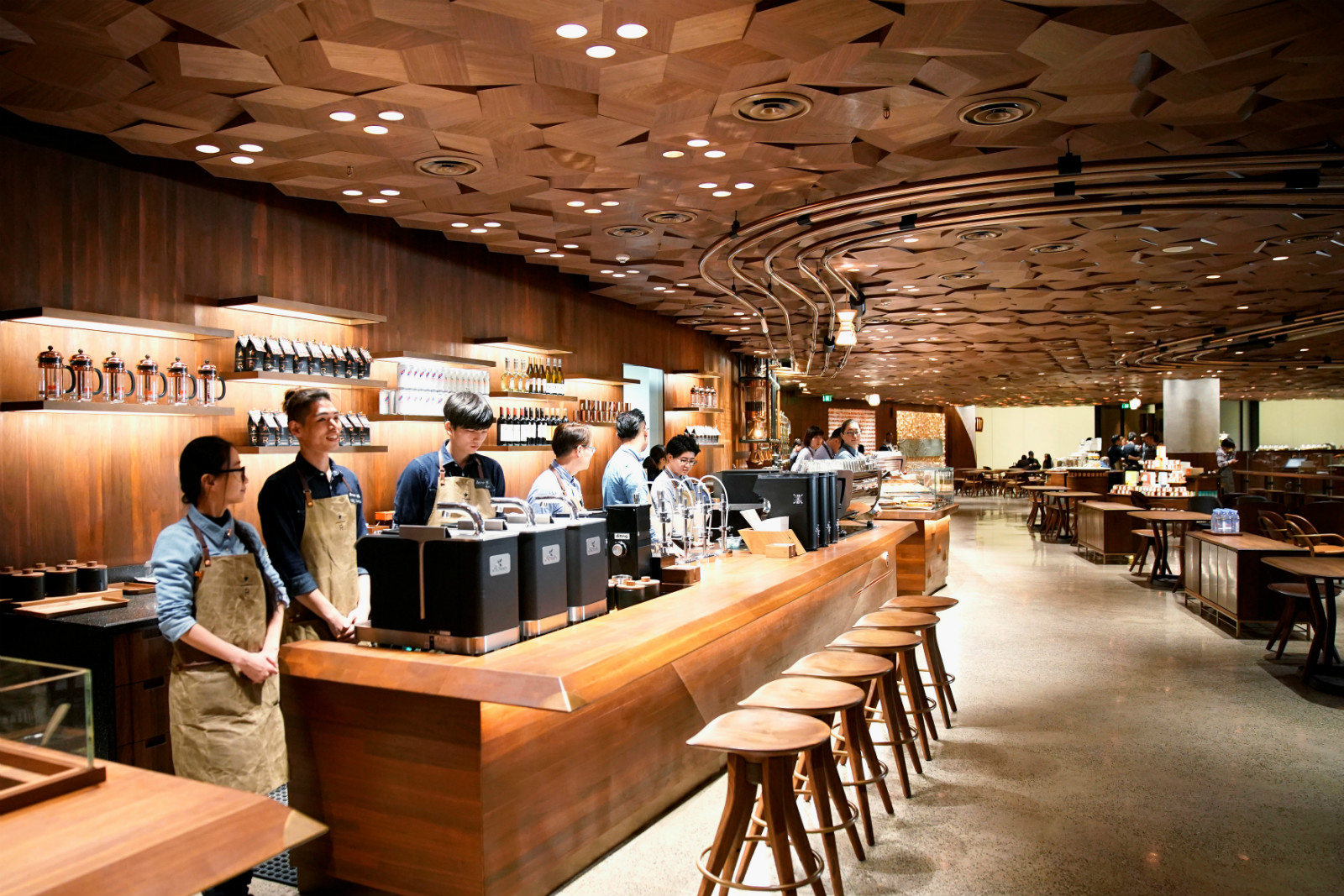
China has become the second largest market for Starbucks in the world, after the United States, where it originated. Photo: Reuters
For professional baristas, please follow the coffee workshop (Wechat official account cafe_style)
Although Starbucks represents the US coffee shop chain, they are now choosing to open the world's largest flagship store in China. The boutique bakery (Reserve Roastery) in Shanghai, one of Starbucks' top concept stores, covers an area of 30000 square feet. There are only two Starbucks boutique bakeries in the world, and the new Shanghai store is twice as large as the first concept store that opened in Seattle in 2014.
The symbolism behind it may be more remarkable than the actual revenue of this giant flagship store. Starbucks' development direction of Sinicization in recent years is clear, as can be seen from the Chinese decoration of the new store. Perhaps Starbucks, which first entered China, did not expect that today's China will be the second largest market for this multinational chain, after the United States, where it originated. Starbucks now has more than 3000 stores in China, and it was announced earlier that they aim to have 5000 stores in China by 2021.
According to a rough estimate, Starbucks stores in China account for 10 per cent of global chain stores, compared with only 3 per cent of all Starbucks stores in 2009. More interestingly, if you go back 10 years, when Starbucks planned to develop its business in China in 1999, the whole of China did not even have the concept of a coffee shop.
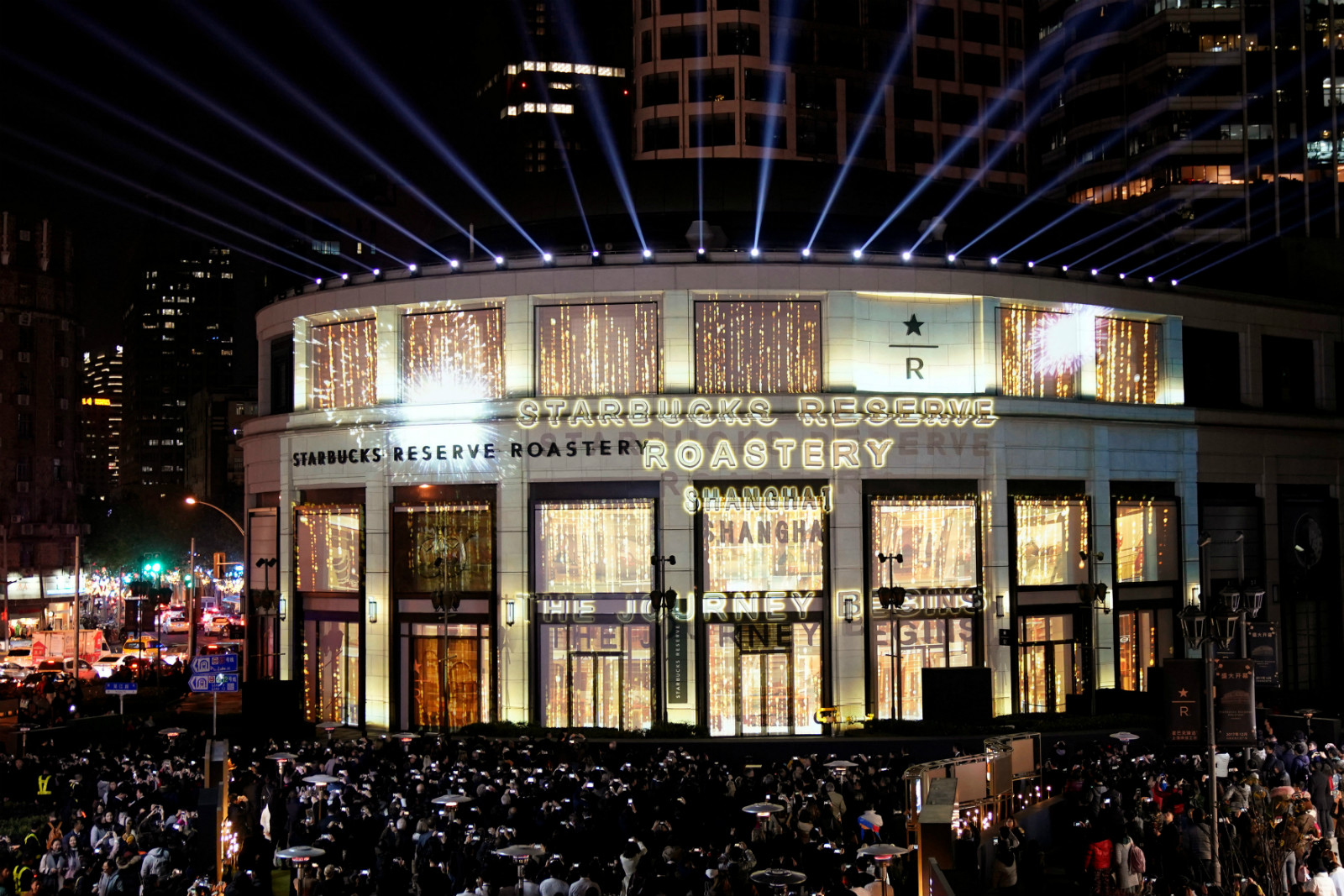
The boutique bakery (Reserve Roastery) in Shanghai has officially opened and is currently Starbucks' largest flagship store in the world. Photo: Reuters
Starbucks is afraid to expand at the rate of adding a branch in less than a day, which is precisely to see the huge development potential of the Greater China market. China is now one of the world's leading consumers of coffee, with the coffee market surging from 1.1 billion yuan in 2006 to 20 billion yuan last year, compared with 128200 metric tons of coffee beans last year, with an average annual growth rate of 22% since 2006. The explosive increase in demand for coffee has something to do with the rapid growth of China's wealthy population and the popularization of the middle class in recent years. It is no longer only the upper class that can afford to drink boutique coffee. Similarly, the link between high-end coffee and middle-class consumers is rapidly taking shape in major Chinese cities. The Starbucks logo, as a classic status symbol, obviously hits the psychology of the rich Chinese, so China has naturally become an excellent place for Starbucks to expand its business. in fact, Starbucks coffee in China is even more expensive than Starbucks in the United States.
Or, Starbucks' way of doing business only means that coffee is popular in China's first-and second-tier cities and is a middle-class taste of life, but the truth is more than that. For people in small rural areas in remote areas, coffee is not only more common, but also indispensable, because it is a huge source of income.
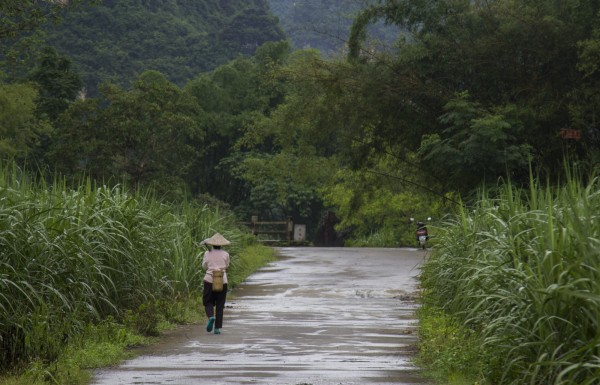
Yunnan has been transformed into the largest coffee producing area in China. Due to its considerable income and greater security, many rural areas have changed from growing sugar cane to growing coffee.
Today, if we only think of Pu'er tea in Yunnan, it will not be able to keep up with the general trend of China. Growing tea is far less profitable than growing coffee. Yunnan has long been transformed into China's largest coffee producing area, accounting for 98% of domestic coffee production. In Starbucks' newly completed Shanghai flagship store, it even exclusively sells high-quality coffee beans produced in Yunnan. According to China Daily, a farmer who owns a 3-hectare coffee field in Yunnan earned 100000 yuan last year just by selling coffee beans. This is an astronomical figure that they hardly dared to imagine in the past. However, all the changes will take only 10 years.
Ten years ago, with the subsidy of the Yunnan local government, a group of rural people changed from growing sugar cane to growing coffee. Based on the fact that coffee is not a staple food, they had a low degree of social awareness in rural areas. At first, they were hesitant and reluctant. Only some of them dared to try. As a result, coffee quickly became popular in big cities, and coffee beans successfully allowed one impoverished countryside after another to grow amazing wealth.
At the same time, in order to maintain the quality of coffee and make farmers willing to grow it, coffee companies not only deliver beans and technology, but also have a price guarantee mechanism to ensure that farmers will not lose money, not to mention the fear that falling prices of coffee beans will affect their income. From the farmer's point of view, growing coffee is not only a steady gain, but also a good job. Because growing coffee is much easier than growing sugar cane in the past, it doesn't take much effort. During the harvest period, even the elderly and children in the family will go to the fields to help with the harvest. Ten years later, more than half of the farmers in the area choose to grow coffee, and the coffee field covers an area of 55 hectares.
According to a survey conducted by the Ministry of Agriculture in 2016, more than half of the 73000 tons of coffee fields in Yunnan will be shipped to foreign countries, with exports worth 280 million US dollars.
Making a cup of branded coffee represents the middle-class image of the wealthy class in China's first-and second-tier cities, but growing a basket of coffee beans is the golden dream of China's rural society. For villagers who have been farming for generations, growing coffee is a wise decision, which not only improves their lives, but also helps to lift them out of poverty. When they get rich on coffee, they become the next middle class, and then, you know, of course they drink a cup of coffee and savor life. Similar stories happen every day in remote rural areas, perhaps faster than Starbucks stores.
Important Notice :
前街咖啡 FrontStreet Coffee has moved to new addredd:
FrontStreet Coffee Address: 315,Donghua East Road,GuangZhou
Tel:020 38364473
- Prev
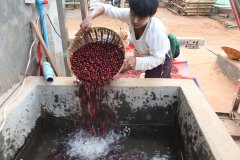
What's so special about the coffee carbon clothes selected by NetEase? does the coffee carbon clothes smell like coffee?
Professional barista exchanges please follow the coffee workshop (Wechat official account cafe_style) according to NetEase's carefully selected page information: 41% viscose fiber 32% polyester fiber 23% acrylic 4% spandex notes 1. The front door of the gray 140-165 yard section is designed to go to the toilet, so it is recommended for big boys to buy the gray large size section. It is recommended to wash with underwear of the same color; 3. Advice and adult clothing
- Next
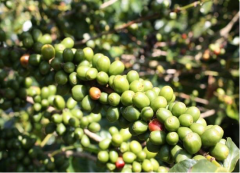
California also began to grow coffee? Blue bottle speaks about the future of California coffee!
Professional baristas follow the Coffee Workshop (Wechat official account cafe_style) Oakland-based coffee roasting company Blue Bottle Coffee announced the release of its first California-grown coffee from Frinj Coffee, the new coffee business of Good Land Organics, an experimental fruit and coffee farm. Jay R, founder of GLO
Related
- The ceremony is full! Starbucks starts to cut the ribbon at a complimentary coffee station?!
- A whole Michelin meal?! Lucky launches the new "Small Butter Apple Crispy Latte"
- Three tips for adjusting espresso on rainy days! Quickly find the right water temperature, powder, and grinding ratio for espresso!
- How much hot water does it take to brew hanging ear coffee? How does it taste best? Can hot water from the water dispenser be used to make ear drip coffee?
- What grade does Jamaica Blue Mountain No. 1 coffee belong to and how to drink it better? What is the highest grade of Blue Mountain coffee for coffee aristocrats?
- What are the flavor characteristics of the world-famous coffee Blue Mountain No. 1 Golden Mantelin? What are the characteristics of deep-roasted bitter coffee?
- Can I make coffee a second time in an Italian hand-brewed mocha pot? Why can't coffee be brewed several times like tea leaves?
- Hand-brewed coffee flows with a knife and a tornado. How to brew it? What is the proportion of grinding water and water temperature divided into?
- What is the difference between Indonesian Sumatra Mantinin coffee and gold Mantinin? How to distinguish between real and fake golden Mantelin coffee?
- What does bypass mean in coffee? Why can hand-brewed coffee and water make it better?

